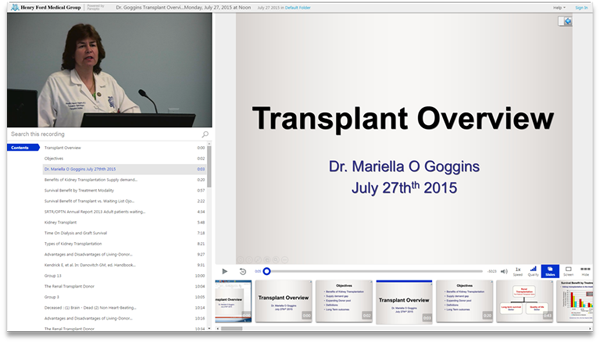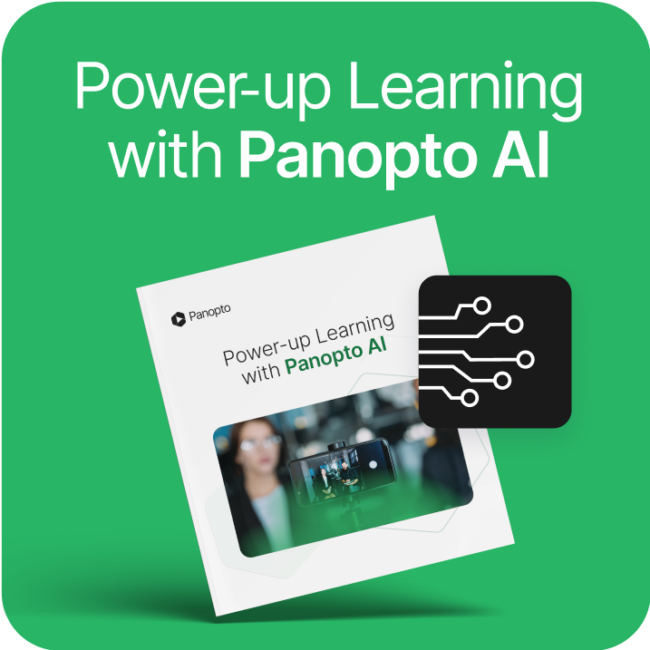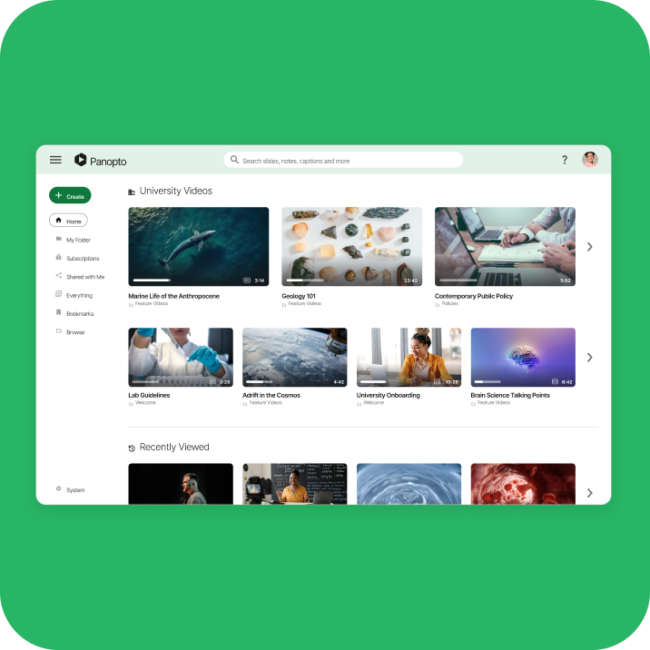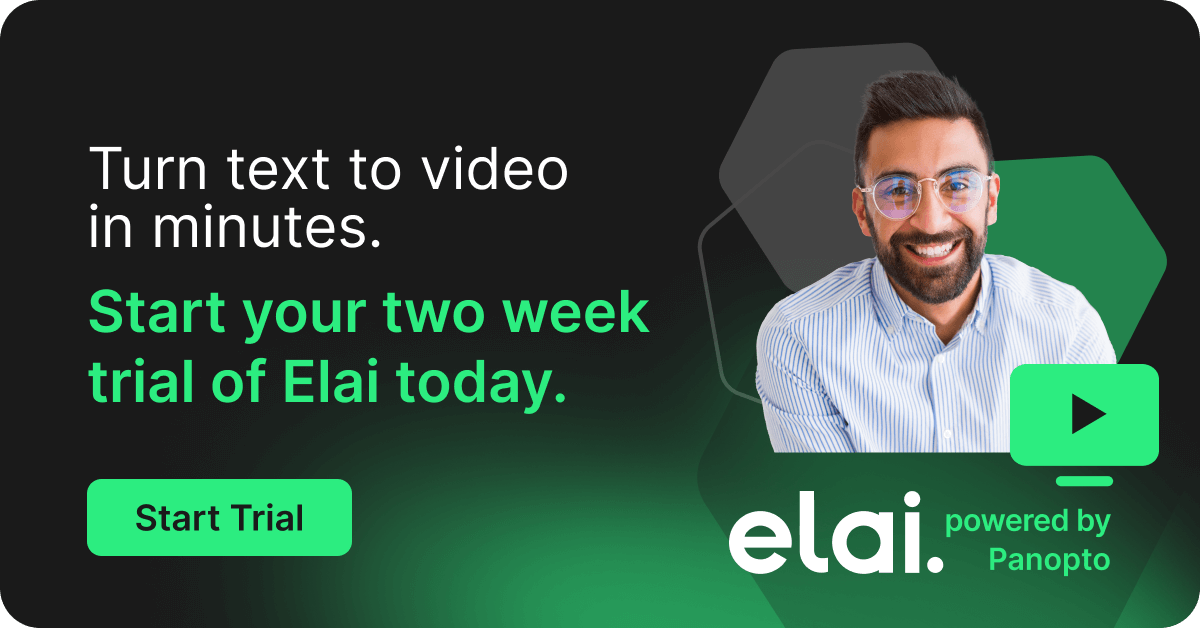- Uncategorized
This Week In Ideas Shared With Panopto — July 31, 2015
What is it that makes public speaking so hard?
It can’t be the speech. Most of us are happy to share ideas over desktops, emails, and water coolers.
It can’t be the materials. PowerPoint has been with us since 1987 — we’ve all had time to get used to it’s quirks.
It can’t be the stage itself. Acrophobia typically requires more than a few feet to kick in.
So is it simply the spotlight?
For many, making a presentation is a double-edged sword — a proven means to bring attention to one’s ideas, yes, but also to one’s self. In the era before handwriting was common, such a concern wouldn’t have registered — after all, how else would you share information? But with the advent of the modern memo (to say nothing about today’s digital masks provided by email and social media), a great many of us have become content to make our cases only in text, and have lost the practice of putting a voice behind our ideas.
It’s a decision that may save us from an audience’s gaze, but in doing so, robs our causes of same. Ideas don’t present themselves. And text alone all too often can’t amplify a message enough to break through — even at work (where they’re paid to read what they’re given), people are 75 percent more likely to watch a recorded presentation than to read documents, emails, or articles.
Taking the stage (however nervously) instantly gives your case a shot of credibility. Sharing your ideas in a public forum clears out all the noise and distractions that conspire to devalue text, making sure your audience (whether it’s in a classroom, a conference room, or a convention hall) really understands.
Best of all, modern technology is making it possible to tap the power of making a presentation without requiring the stage — or the live audience — at all. The ease of recording and sharing video is today helping people all over the world give a voice to their ideas and share it broadly on-demand, via social channels, email, intranets, and corporate YouTubes.
With a video presentation, you can make your case in full — even make edits if you like — and share it with anyone in a format that’s way more engaging than text alone.
This week we saw more and more people taking advantage of the power of video to share ideas, present information, and show how the world works. And in the spirit of passing it on, these are just a few of the ideas shared this week with Panopto’s video presentation software.

The Gendered Ramifications of Austerity Policies and How to Tackle Them
Diane Perrons, Director of the Gender Institute and Professor of Economic Geography and Gender Studies at the London School of Economics, shares this recorded keynote at the Rethinking Economics conference discussing how the effects of European austerity measures have been felt unequally across gender lines. Perrons looks at the specifics of the recent financial measures and finds women overwhelmingly experienced sharper cuts than did men, and face greater restrictions now to potential career and savings plans. To counter these losses, Perrons suggests a range of alternative policy solutions, from investing in care to spending on social infrastructure.

Closing the School Discipline Gap
The Center for Civil Rights Remedies at UCLA’s Civil Rights Project and the Center on Race and Social Problems at the University of Pittsburgh School of Social Work host this panel presentation on closing the school discipline gap. Based on the latest findings of detailed social research, the conference explores the impacts of exclusionary school-discipline practices, research-based approaches to reducing the discipline gap, and efforts to end the school-to-prison pipeline.

Renal Transplant Overview
Dr Mariella Goggins of the Henry Ford Medical Group shares this grand rounds presentation, introducing everything a new physician should know before performing a kidney transplant. Dr Goggins looks into the benefits of receiving a transplant for patients, the current state of the supply demand gap and resulting changes that are expanding the potential donor pool, and the long term outcomes of receiving a transplant that doctors should be prepared to discuss with patients.

What Is Income?
It’s a question that seems obvious — until it becomes a question of tax law. Join the students at Golden Gate University for this recorded lecture looking into the specifics of how the United States defines income, how different income sources are defined differently, and how those definitions ultimately shape individual tax liabilities.
Try It For Yourself!
Panopto makes it easy for anyone, anywhere to record presentations and share them online, both as live streaming webcasts and recorded on-demand video. To see how Panopto can help you share your ideas, contact our team for a free trial today.




